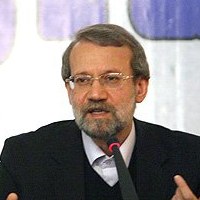![]()
Sun, Jan 09, 2011 | The Meir Amit Intelligence and Terrorism Information Center

Iranian president Mahmoud Ahmadinejad (L) and the Indian Prime Minister Manmohan Singh (R). (Photo: AP)
Tensions Between India and Iran Escalate
This week, Iran’s media have extensively covered the escalating tensions between Iran and India following last week’s announcement by the Indian Central Bank that Iran will not be able to sell oil to India unless the current payment arrangements between the two countries change. On December 23, the Central Bank of India stopped facilitating payments for crude oil imported from Iran.
Oil sales from Iran to India are currently facilitated by the Asian Clearing Union (ACU), allowing it to bypass the American sanctions on Iran’s energy sector. The ACU, based in Tehran, settles trade transactions with Bangladesh, Bhutan, India, Iran, Nepal, Pakistan, the Maldives, Myanmar and Sri Lanka. The decision of the Indian Central Bank may make it more difficult for Indian companies to purchase oil and gas from Iran. The heads of the two countries’ central banks met for emergency discussions on Friday (in Mumbai) in an attempt to resolve the problem threatening their energy relations and to put in place a new mechanism for Indian oil companies to make payments for the Iranian crude oil they buy.
Iran is India’s second largest crude oil supplier, after Saudi Arabia, and currently imports about 400 thousand barrels of oil from Iran per day, about 17 percent of its total oil imports. India imported 21.3 million tonnes of crude oil from Iran in 2009-10; imports are expected to be around 18 million tonnes this year.
Iranian senior officials tried to play down the problem which arose following the announcement of India’s Central Bank. Iran’s deputy oil minister Ahmad Khaledi said in an interview given to Fars News Agency that the problem would likely be resolved by using foreign currency other than the dollar or the euro in oil transactions between the two countries (Fars, January 1). Ahmad Ghalebani, chairman of the national oil company, denied reports according to which the Indian Central Bank’s announcement would cut off the supply of oil from Iran to India. In an interview given to ISNA News Agency, Ghalebani said that the disagreements between the two countries over the payment arrangements had caused no problems in the export of oil from Iran to India, and that the energy cooperation between the two countries proceeded as usual (ISNA, January 2).
However, Iranian media have assessed this week that the Indian Central Bank’s announcement reflects a fundamental change in India’s foreign policy towards Iran. The conservative daily Keyhan claimed that the bank’s announcement should be considered to reflect the secret understandings achieved between President Barack Obama and the Indian authorities during his visit to New Delhi last November. The daily claimed that despite the Indian government’s announcement that it was a technical and tactical issue that did not reflect an intention on India’s part to adopt the U.S. policy towards Iran, it was in fact a move designed to secure the interests of the U.S. and its Western allies. According to Keyhan, it is India that will suffer if the relations between the two countries take a downturn, seeing as Iran is its second most important oil exporter. Due to India’s continuing population growth, that country will likely face a severe energy crisis in the next few years, and Iran is the only country able to satisfy its vital energy needs.
The daily added that India forgot how Iran had supported it in 1994, when the international community was going to impose sanctions on it due to the Kashmir crisis, and how it had revived India’s dying economy. India is now playing the Iran card to improve its relations with the U.S., Keyhan says, and Iran must not remain silent over the measures taken by India (Keyhan, January 3).
The conservative daily Siyasat-e Rooz also strongly criticized India, claiming it could not ignore Iran’s economic capabilities and regional status. India should have realized by now that imposing sanctions on Iran is a waste of time and resources. According to the daily, India’s decision shows lack of political insight into global conditions towards Iran. If India wants to be a player on the regional and global scene, it cannot cooperate with the U.S. against other countries and may find itself internationally isolated, similarly to such countries as Germany, Britain, and France (Siyasat-e Rooz, January 1).
The daily Tehran Emrouz also addressed the escalating tensions between India and Iran. An editorial published by the daily earlier this week claims that India wants to play the Iranian card to obtain benefits from the U.S. India’s unfriendly conduct towards Iran, according to the daily, reflects the transformation of its foreign policy in recent years. Starting from the ‘90s, the dissolution of the USSR and the developments in China have led India’s leaders to change their foreign policy and attempt to improve the international status of their country. India now wants to cooperate with the U.S. over the issue of Iran and take advantage of the cooperation in other spheres. The cancellation of the gas pipeline from Iran to India, the Indian vote in the UN and IAEA against Iran, and the recent trade problems between the two countries reflect a change in India’s policy. Indian politicians are not interested in opposing America’s demand to change their country’s policy towards Iran, since cooperation with the U.S. serves Indian interests and because they feel that, unlike China, their country is unable to resist the U.S. (Tehran Emrouz, January 2).
A crisis broke out in India-Iran relations in November, when Supreme Leader Ayatollah Ali Khamenei expressed support for the struggle of the Muslim residents of Kashmir. Following the Supreme Leader’s remarks, India lodged an official protest with the Iranian government. As tensions reached their peak, several Iranian media strongly criticized the Indian leaders and even warned them that they should not count on American support after changing their policy towards Iran.



 RSS
RSS










Tensions Between #India and #Iran Escalates | #Oil #Sanctions #Kashmir http://j.mp/g1SyWg
Tensions Between #India and #Iran Escalates | #Oil #Sanctions #Kashmir http://j.mp/g1SyWg http://ff.im/wsjDF
RT @CrethiPlethi: Tensions Between #India and #Iran Escalates | #Oil #Sanctions #Kashmir http://j.mp/g1SyWg http://ff.im/wsjDF
RT @CrethiPlethi: Tensions Between #India and #Iran Escalates | #Oil #Sanctions #Kashmir http://j.mp/g1SyWg